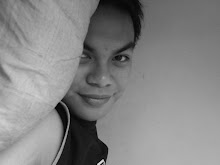| Daniels vs DiDonato (hint: TEAM SYCORAX!!) |
First off, the two main characters: Prospero and Sycorax. David Daniels had long been a very important counter--tenor, if not in Europe then in the Americas, so I was prepared to give a leeway. His tone was still gorgeous as long as it remained within his mid-high register; everywhere else and it's a hit-or-miss situation. His coloratura is laboured, and some of his figures were 'spattered'. He attempted large leaps (à la Horne) but these largely failed. His diction is still exemplary among counter-tenors though, and I think his is the only counter-tenor who is able to make his nuances heard at the Met without over-stretching himself.
On the other hand Joyce DiDonato is a pleasure to hear to. Her voice had gained in edge and overdrive which she used effectively in her coloratura, suggesting 'rage' and 'vengeance'. Her diction was the best, followed very closely by Danielle's Ariel, and this considering aria, scene and recitative works. Her over-driven chest voice sounded rather un-Orthodox, even extreme at times, but it was all to serve the drama. THE DRAMA!!
Danielle De Niese' Ariel was at times pleasant to hear. Like the current Daniels, hers is an instrument best enjoyed within certain limits: not too high, not too low, not too fast. When going too high the instrument break out into the infamous 'glare' now well-known to her audiences. When too fast her coloratura becomes smudged and almost illiterate, however that's happily a rare occasion in this outing. Dani's recitative works was also very impressive, she certainly knew how to play with the accents and the rhythm of the speech.
Luca Pisaroni presented a dilemma: a fascinating, rich instrument incapable of movement. His cantabile is wonderful but his passage-work is frankly a mess.
Lisette Oropesa's Miranda was interesting, but lacking in style. Even Dani was at least entrenched in the Handelian mode. I suspect Oropesa may do better in bel canto setting, probably as La sonnambula's Lisa.
Layla Claire's instrument sounds similar to Danielle's, which sometimes confused me because her line is much cleaner! She had a genuine trill, albeit for two seconds only (the best trill of the night belongs to Joyce, in a passage-work no less!).
Anthony Roth Costanzo's Ferdinand suffered from the dread wooble. What is happening with today's counter-tenors? Maybe it's the 'prima' nerves, but it's sad because it's a very beautiful instrument.
The lovers' quartet (tenor Paul Appleby as Demetrius, soprano Layla Claire as Helena, baritone Elliot Madore as Lysander, and especially mezzo Elizabeth DeShong as Hermia) was amusingly enchanting. Their entrance quartet was wonderful, though later another quartet suffers from 'over-Romanticism' i.e. too much vibrato for Baroque voicing. Elizabeth DeShong's Hermia was especially impressive: she was given Dejanira's mad scene from Handel's Hercules, and there she was singing, with Joyce DiDonato, the premier exponent of Dejanira, in the wings, and she kicked the ball out of the park! Mr. Madore's baritone was gorgeous, and his passage-work while maintaining the theme of 'male singers can't do runs' was cleaner than Pisaroni. I cannot be cruel to someone named Appleby, but I don't need to because Mr. Appleby was amazing! His messa di voce was quite wondrous.
And Domingo. I had a suspicion there's a clause somewhere in his contract saying "No A's or above". His was the richest timbre of the cast, I'd give him that, and what he lacked in style he certainly made up with tons and tons of morbidezza and sheer balls.
William Christie's conducting, more at home in Baroque music, was wonderful, keeping up to pace in the virtuosic parts while maintaining an airy souciance at slower and mid-tempo sections. I had a theory that the Met plays better Baroque when the tempo is slower, because at allegro or faster the runs and figures sounded robotic and bloodless. It's really hard to explain but I think it's because at slower tempi when the strings are allowed to sing, the orchestra really comes to its own. The chorus was magnificent, tons better than the Bolena run definitely. The ballet-masque music, adapted from Rameau, was wonderful, especially the strings and the bassoons - just delicious. Generally the music is better when it's adapted from Handel, as compared to perhaps Vivaldi. Rameau's genius was his ballet pieces just sounded good no matter if the orchestra is not really a ballet-oriented orchestra.
The English libretto was quite good, though at times I do wish they'd stick with the Shakespearean mentality instead of giving quasi-street parlance vibes. Case in point: Prospero's "To save my girl from heartbreak", can't they substitute "girl" with "daughter", just divide the beat into a dotted eighth and a sixteenth. Ah well.
All in all, 4.25 out of 5. A well-deserved turn for Baroque music at the greatest opera house of the world, at last.









I'm the last person to be mean-spirited, so I say with all due respect that Merefois has little idea what he is talking about. Without going into detail, the opinions in particular about voices in last night's performance are deeply flawed. Everyone is entitled to their opinion, and this is mine.
ReplyDelete